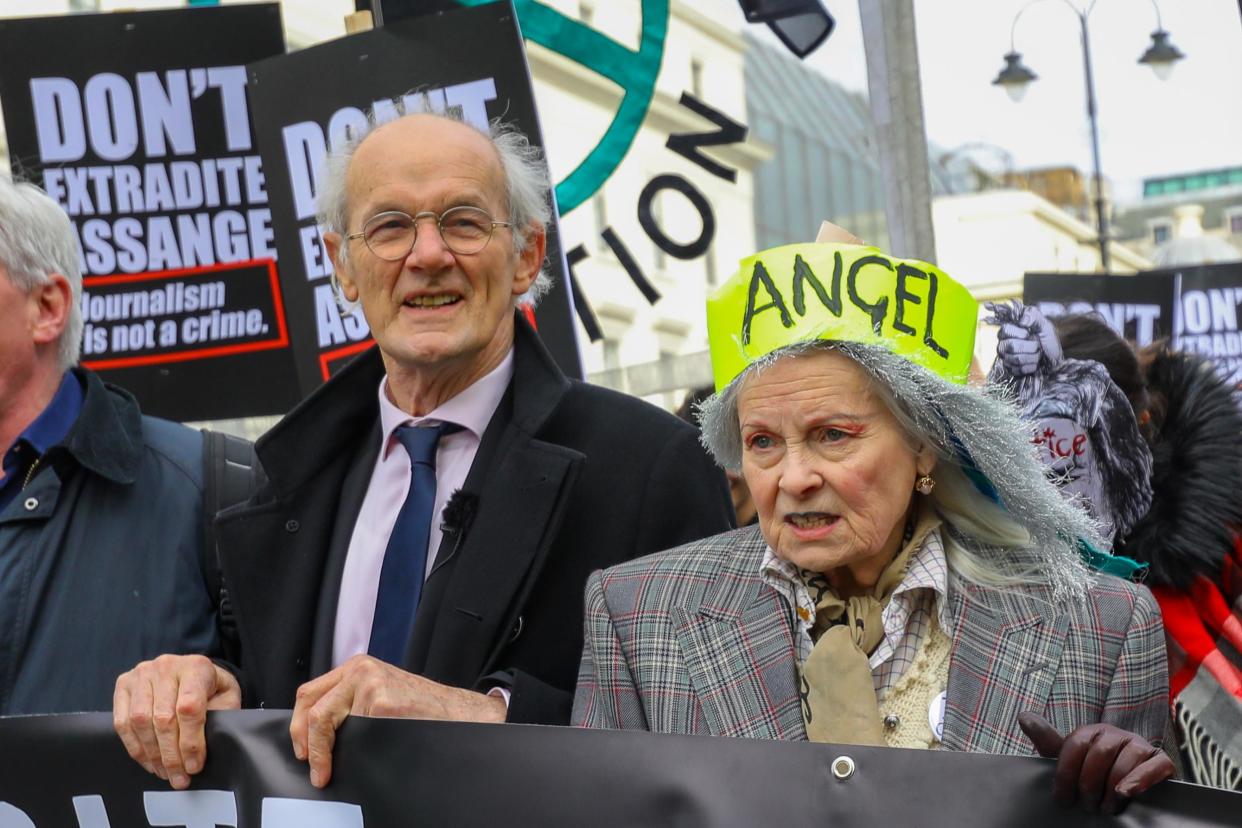Julian Assange: Protesters including Vivienne Westwood and Roger Waters march on parliament ahead of Wikileaks founder's extradition hearing

Hundreds of people have marched through central London to protest the potential extradition of Wikileaks founder Julian Assange to the US.
Prominent supporters including Greek economist Yaris Varoufakis, Pink Floyd’s Roger Waters and designer Vivienne Westwood joined crowds on the march from the Australian embassy to Parliament Square ahead of a extradition hearing next week.
Demonstrators held signs which read “don’t extradite Assange” and “no extraordinary rendition”.
The 48-year-old faces 18 charges in the US related the Wikileaks’s publication of sensitive state documents a decade ago. Mr Assange is currently being held in London’s high-security Belmarsh prison and could be jailed for up to 175 years in the US if convicted.
“This is the most important case in history – in human history, in the history of the animals and all the life forces on this planet”, said Westwood, who described herself as an “angel of democracy” and spoke from a podium while wearing a homemade halo.
“If we can get Julian out it can crack the wall of corruption”, she added in a speech which she closed with the words “free Assange, rock and roll”.
Mr Assange’s father, John Shipton, said he did not understand why his son had been imprisoned in the UK while urging those at the rally to fight to “free Julian from the Niagara of malice that emanates from the Crown Prosecution Service”.
Kristinn Hrafnsonn, editor-in chief-of Wikileaks, said the website’s founder was facing a “dark force”.
He added: “We must stop it. We must stop this force, this is not about left or right in politics, we can unite on this. It is a dark force against us who want justice, transparency and truth.”
Mr Assange was arrested at the Ecuadorian embassy in London in April, having claimed asylum in the building for seven years to avoid extradition to Sweden over sex offence allegations, which he has always denied.
Sweden has since dropped its investigation into Mr Assange due to the length of time that has passed since the alleged incidents took place.
Many of the charges the activist could face in the US relate to Mr Assange’s founding and work on Wikileaks – which published sensitive and classified documents, including more than a million files leaked by US army intelligence analyst Chelsea Manning.
Human rights organisations have raised concerns over the duration of Mr Assange’s incarceration, including his time spent at HMP Belmarsh and in the Ecuadorean embassy.
In May, Nils Melzer, the UN’s Special Rapporteur on torture, condemned the “deliberate, concerted and sustained nature of the abuse inflicted on Mr Assange”.
He added: “In 20 years of work with victims of war, violence and political persecution, I have never seen a group of democratic states ganging up to deliberately isolate, demonise and abuse a single individual for such a long time and with so little regard for human dignity and the rule of law. The collective persecution of Julian Assange must end here and now.”
Read more
If Trump did try a quid pro quo with Assange, America needs to act


